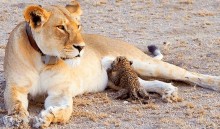Private guides and guided tours in Burkina Faso
Private guides in Burkina Faso
Private Guide in Ouagadougou - Balanzan
(Member Since 2009) Excursions/tous in the following cities: Ouagadougou Languages: English, FrenchBalanzan Tours is a travel agency based in Mali, created in August 1996 in Ségou and located in Bamako today by Tiemoko Coulibaly with the help of its friends, who is his Manager, it offers tour in Mali and the whole west Africa such us Burkina, Senegal, Togo, Benin and Ghana.

Burkina Faso
Language: French
Currency: Communaute Financiere Africaine franc (XOF, XAF)
Calling Code: +226
CAPITAL CITY OF Burkina Faso: Ouagadougou
LANGUAGE OF Burkina Faso: French
CURRENCY OF Burkina Faso: Communaute Financiere Africaine franc (XOF, XAF)
COMMENTS ABOUT Burkina Faso:
Burkina Faso is a landlocked nation in West Africa.
Cities : Ouagadougou (Capital), Banfora, Bobo-Dioulass, Bokin, Dedougou, Djibo, Dori, Fada n'Gourma, Gaoua, Gorom-Gorom, Kaya, Koudougou, Leo, Oradara, Ouahigouya, Zorgho
Calling code : +226
Time zone : GMT
Electricity 220V/50Hz (European plug)
Viza and Passport : Passport and a visa are required to enter the country. You generally should obtain your visa in advance, although European Union citizens can obtain visas upon arrival at the airport (10,000 CFA). If you are not from the European Union, the cost of a 3 month 1 entry visa is 28 300 CFAm and must be acquired in advance of your journey
Eat : FuFu, Ragout d'Igname, Riz Gras, Riz Sauce, Spaghetti, Haricots verts, Petits pois, Soupe, Salade, Beignets, Fried ignames, patate douce, Alloco, Brochettes, Porc au four, Gateau
Drink : Bisap, Yamoku, Gingembre, Toedo, Pain de singe, Yoghurt, Dolo Burkina Faso (formerly Upper Volta) achieved independence from France in 1960. Repeated military coups during the 1970s and 1980s were followed by multiparty elections in the early 1990s. Burkina Faso's high population density and limited natural resources result in poor economic prospects for the majority of its citizens. Recent unrest in Cote d'Ivoire and northern Ghana has hindered the ability of several hundred thousand seasonal Burkinabe farm workers to find employment in neighboring countries.
CLIMATE OF Burkina Faso: Burkina Faso has a primarily tropical climate with two very distinct seasons: the rainy season with between 24-35 inches (600 and 900 mm) of rainfall, and the dry season during which the harmattan blows, a hot dry wind from the Sahara. The rainy season lasts approximately 4 months, May/June to September, and is shorter in the north of the country.
RELIGION OF Burkina Faso: indigenous beliefs 40%, Muslim 50%, Christian (mainly Roman Catholic) 10%
POPULATION OF Burkina Faso: 13,574,820 - estimates for this country explicitly take into account the effects of excess mortality due to AIDS; this can result in lower life expectancy, higher infant mortality and death rates, lower population and growth rates, and changes in the distribution of population by age and sex than would otherwise be expected (July 2004 est.)>>
HISTORY OF Burkina Faso: Independence from France came to Burkina Faso (formerly Upper Volta) in 1960. Governmental instability during the 1970s and 1980s was followed by multiparty elections in the early 1990s. Several hundred thousand farm workers migrate south every year to Cote d'Ivoire and Ghana.
ECONOMY OVERVIEW OF Burkina Faso: One of the poorest countries in the world, landlocked Burkina Faso has few natural resources, a fragile soil, and a highly unequal distribution of income. About 90% of the population is engaged in (mainly subsistence) agriculture, which is vulnerable to variations in rainfall. Cotton is the key crop. Industry remains dominated by unprofitable government-controlled corporations. Following the African franc currency devaluation in January 1994 the government updated its development program in conjunction with international agencies, and exports and economic growth have increased. Maintenance of macroeconomic progress depends on continued low inflation, reduction in the trade deficit, and reforms designed to encourage private investment. The internal crisis in neighboring Cote d'Ivoire continues to hurt trade and industrial prospects and deepens the need for international assistance.



 French
French Spanish
Spanish Russian
Russian








